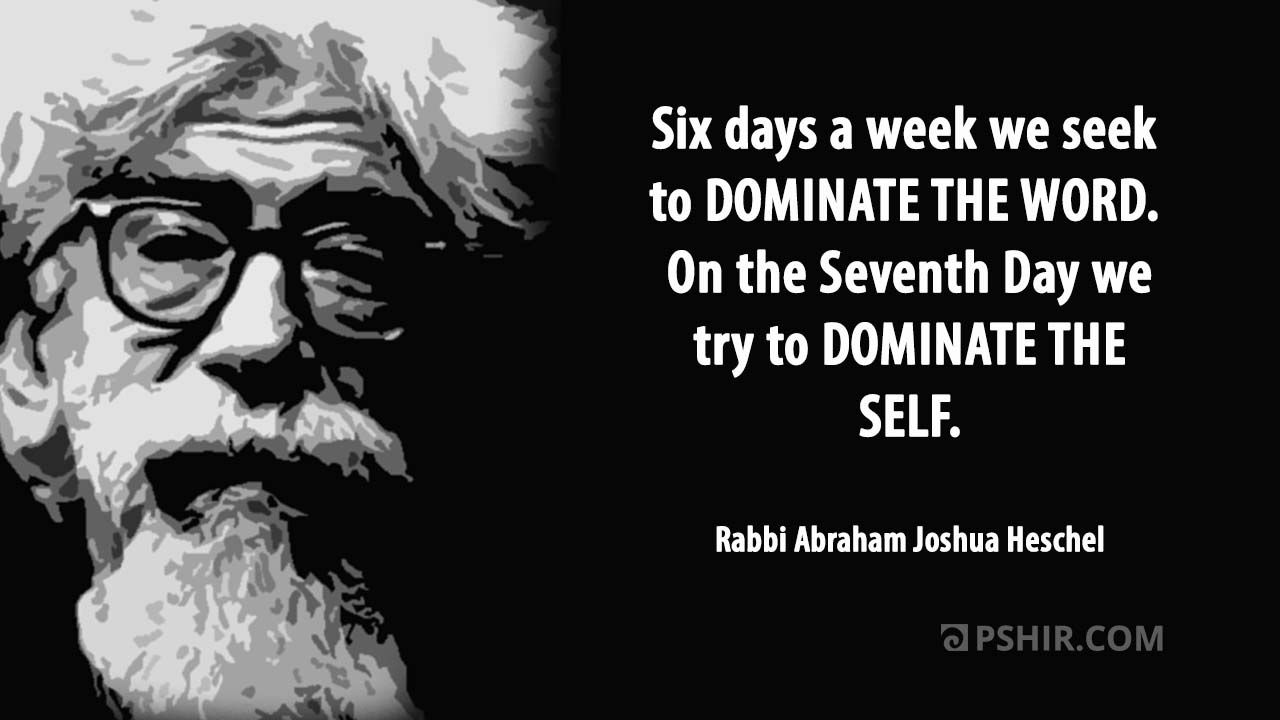Six days a week we seek to dominate the world. On the seventh day, we seek to dominate the self.
Rabbi Abraham Joshua Heschel
Countless Bible readers have stumbled over verses where God tells Moses to instruct Israelites to sanctify the Sabbath. But what does that mean? How does one exactly make a day holy? Moses does not go into detail. In Rabbi Heschel's book "The Sabbath" he expresses a simple but profound idea. Instead of sanctifying things God sanctified time and that is what the Sabbath is.
When Rabbi Heschel said that " for six days we seek to dominate the world" he meant that throughout the week we engage in our pursuits to transform this world, to shape it into a version that seems best to us. We use our gifts and talents. Whether we do this through making new things, gardening, cooking, or writing software we use our creativity to make changes to the world around us. That is work. But "on the seventh day", says Heschel, "we try to dominate the self". We make an intentional effort to stop transforming the world around us. We cease from the creativity of all sorts, from cooking and gardening, from reconciling budgets or repairing cars. Why? Because that is what the Sabbath means.
After six days of changing the world, it is not easy to cease and just be. So, we seek to dominate ourselves and master our creative nature that does not wish to stop in its pursuit of transformation.











Member discussion